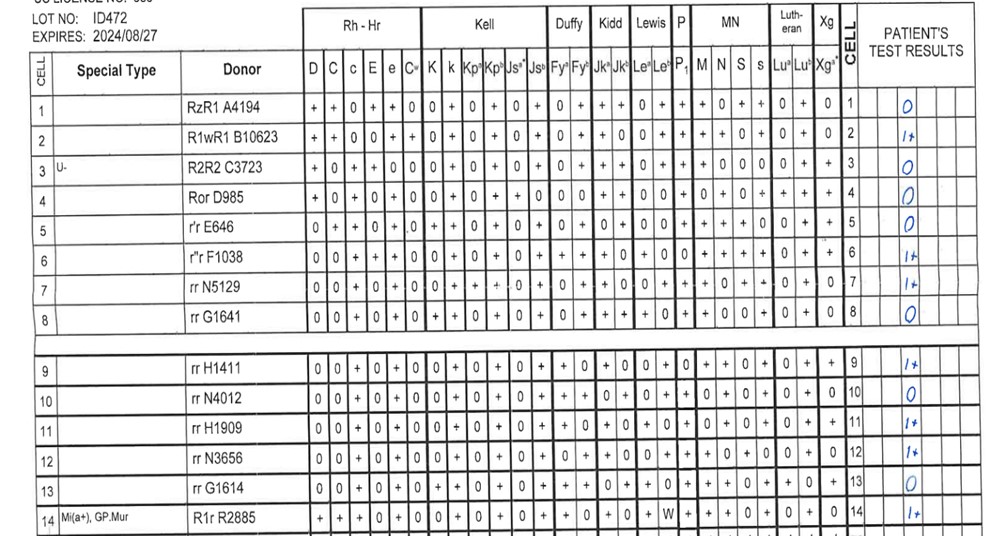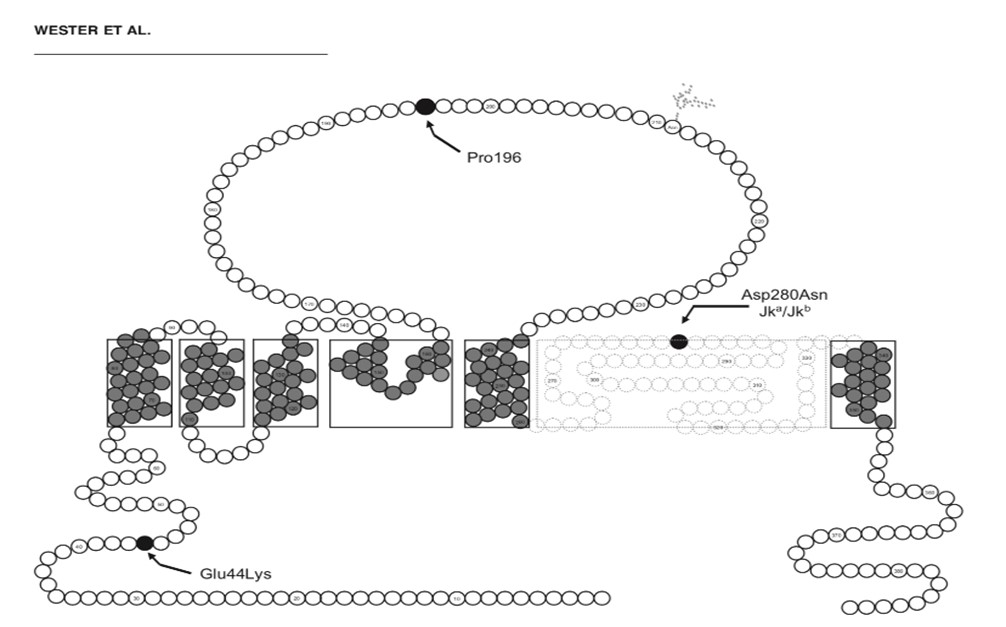Case of the Month - September 2024
Julia M. Rivera-Sustache, MD and Shaun D. Lawicki, MD
A type and screen was received in the blood bank for a 21-year-old African American female admitted for a pain crisis with a past medical history remarkable for sickle cell disease and prior splenectomy. She had no previous history of positive antibody screens or known alloantibodies despite numerous transfusions in the past. Her current hemoglobin is 7.1 g/dL with her baseline hemoglobin reported to be 6.5-7.5 g/dL, so 1 unit of RBCs was requested.
The initial workup was significant for O Rh+ blood type and a positive antibody screen with solid phase testing. The subsequent solid phase antibody panel performed is shown in figure 1. Tube testing had similar findings with microscopic positivity (m+) with Jka homozygous cells and no agglutination with heterozygous cells. A direct antiglobulin test (DAT) was m+ for IgG and negative for C3 with weak (1+) panreactivity observed in the eluate.

Figure 1. Patient's antibody panel
These results are consistent with an anti-Jka antibody, however phenotyping of the patient’s red blood cells revealed she was also positive (2+) for the Jka antigen. The decision was made to send for genotyping studies with DNA sequencing of JK exons 3 to 10. The results are shown in figure 2 and a schematic representation of the Kidd protein is shown in Figure 3.

Figure 2. Patient's genotyping results

Figure 3. Diagram of Kidd protein demonstrating the location of the amino acid alterations of interest (Image Source: Wester et. al.)
What are the antibody results for this patient?
a) Anti-Jka alloantibody
b) Anti-Jka autoantibody
c) Undetermined specificity
d) Warm autoantibody
Click here for Answer and Discussion
